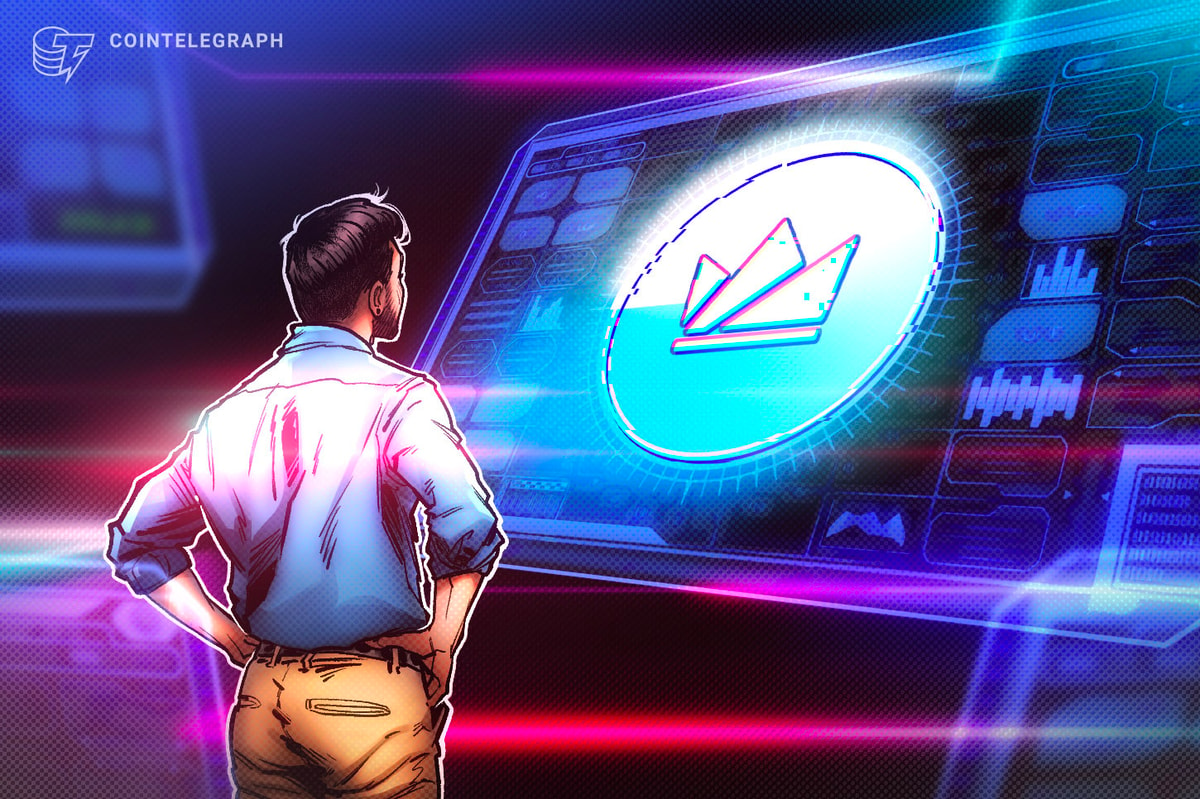The centralized state of artificial intelligence offerings can be depicted as a single toll road controlling the traffic flow of a dense city. The road dictates direction, collects fees and monitors all movement, creating critical bottlenecks while limiting privacy for individual drivers.
The vast majority of the GPT products available work in a similar fashion. GPT products are AI-driven tools and applications capable of understanding and generating humanlike text. Heavy reliance on these products, which are centralized in data and computing dimensions, leads to data privacy degradation, inefficient use of computing resources, opaque corporate governance and a monopoly of AI models.
Avoiding potential catastrophes caused by AI requires a fresh perspective on AI from infrastructure and data perspectives. DecentralGPT, a decentralized AI inference network, is among the first to use blockchain technology to provide the world with a fully decentralized AI service.
“Decentralized AI has not yet been truly implemented,” noted Anwar Alruwaili, chief technology officer of DecentralGPT, adding: “We are the first to propose a project that concretely combines AI with blockchain technology. Just as anyone can create their own website, our platform enables any company or individual to create their own AI agent. This democratizes access to AI, allowing for greater customization and innovation by empowering users to develop AI models tailored to their specific needs.”
DecentralGPT operates as a decentralized AI large-scale language model (LLM) inference network, supporting a variety of LLM models with a cheaper, faster and safer infrastructure compared to traditional AI LLMs. In machine learning, an inference network describes a system used to run trained AI models to make predictions or decisions based on new data inputs.
How does it differ from ChatGPT?
Similar to OpenAI’s ChatGPT, this decentralized tool directly provides AI agents and large model services to users and companies, DecentralGPT chief technology officer Anwar Alruwaili said. Unlike ChatGPT, it uses decentralized GPU providers as infrastructure. The future of AI will depend on optimizing the infrastructure, such as where these models are hosted, how decentralized GPU resources are allocated, and how computing power is distributed, according to Alruwaili. It will also depend on ensuring energy efficiency, ethical development, and integration with emerging technologies such as blockchain.
Our platform incorporates various state-of-the-art open-source models, such as Meta’s Llama 3.1 405B Model, explained Alruwaili. Stressing that the recent evolution of LLM models suggests that open-source models are closing the gap fast with close-end models: “In some cases, such as Llama 3.1 405B, is just as good as some of the closed-source model. In the future, we believe that battlegrounds for AI are not in training LLM models, but rather computing resources empowering these models.”
On the data layer, miners indiscriminately organize and package information on the blockchain. According to Alruwaili, this approach leads to several key advantages.
“First, we are fully decentralized and not subject to any national restrictions. Second, we are open-sourced, transparent and user privacy safe as we do not store user data or know users’ personal information.”
On top of those, DecentralGPT operates with a light asset model without the fiscal burden of maintaining high-end hardware. “This allows our product prices to be cheaper, costing less than 20% of ChatGPT’s price,” Alruwaili added, teasing an upcoming airdrop for early users.
#DeGPT Mobile version is now out! 📲✨ Check our details. We differentiate by providing two to four model answers at once.🔥 It is a performance that is not found in other apps!🚀👍💯 pic.twitter.com/y3fs9a6whu
— DecentralGPT (@DecentralGPT) July 19, 2024
The team’s user-facing app called “DeGPT” is available on mobile devices and desktop browsers. The users’ initial response is very positive with DeGPT having more than 100,000 members in the community.
Ensuring a safe progression for AI
Speaking about the team’s roadmap, DecentralGPT CTO Anwar Alruwaili announced an imminent angel round for early-stage funding. Following that, the team seeks additional funding rounds before the token generation event (TGE) slated for the second half of 2024.
“Artificial general intelligence (AGI) is a very powerful tool with the potential to disrupt humanity,” Alruwaili summarized. “Language models are just one application of AGI. I believe that in the near future, brain-computer interfaces, robots and autopilots will become reality.”
☑️Artificial General Intelligence (#AGI) is the ultimate goal in the field of artificial intelligence🎯🚀 pic.twitter.com/hyqSBrWDBU
— DecentralGPT (@DecentralGPT) June 5, 2024
In the tech-driven state of the modern world, the DecentralGPT team feels obligated to ensure the safe oversight of AGI for all humanity: By addressing the fundamental issues of centralization and privacy and leveraging the strengths of blockchain technology, DecentralGPT stands ready to lead the charge toward a more transparent and secure future for artificial intelligence.
Disclaimer. Cointelegraph does not endorse any content or product on this page. While we aim at providing you with all important information that we could obtain in this sponsored article, readers should do their own research before taking any actions related to the company and carry full responsibility for their decisions, nor can this article be considered as investment advice.












